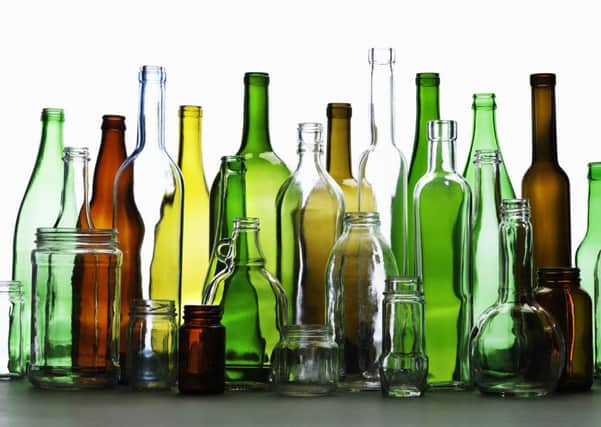Industry questions value of bottle recycling scheme


Potential carbon savings from including glass have also been overstated, they claim, and the move could even prove more damaging to the environment than continuing with existing methods.
The findings come from a new report compiled by trade body British Glass, which proposes an alternative “polluter pays” recycling scheme for glass packaging that would be funded by producers rather than consumers.
Advertisement
Hide AdAdvertisement
Hide Ad“We support a scheme that significantly increases recycling and the reuse of resources, but under the existing plans, which include glass, this is not the case,” said Dave Dalton, chief executive of British Glass.
He says there is “compelling evidence” from overseas that shows including glass in a deposit-return system (DRS) can lead to unintended environmental and social consequences.
These include brands switching to plastic packaging to avoid higher costs associated with collecting and recycling glass – a situation that has led some countries to scrap plans for such schemes.
Scotland’s DRS is being designed by state-funded delivery body Zero Waste Scotland (ZWS), and is due to be rolled out in 2021.
Research suggests such a scheme – where a fee is paid by shoppers when purchasing an item, then refunded when the container is brought back – could stop 18 million cans and 21 million bottles from ending up in landfill or as litter in Scotland each year.
The plan is for an “all-in” model that will include all PET plastic drinks bottles, aluminium and steel cans and glass bottles, with a deposit level set at 20p.
Jill Farrell, chief operating officer for ZWS, said: “The decision to include glass in Scotland’s deposit-return scheme will maximise benefits for the planet and consumers. Including glass significantly increases the scheme’s carbon savings.
“Including glass also allows us to maximise the wider benefits of the scheme, not least by helping to reduce the amount of litter.”
Advertisement
Hide AdAdvertisement
Hide AdBut Dalton claims industry figures show that carbon savings for the inclusion of glass have been “overstated”, and the true figure is around a fifth of the 52,000 tonnes a year stated in official documents.
He said: “Our in-depth modelling of different scenarios gives a very different picture. At best, including glass will save less than 250,000 tonnes over 25 years or around 9,300 tonnes per year, making the Scottish Government estimates some 500 per cent wide of the mark.”
Farrell said ZWS figures were calculated using the same methodology used for Scotland’s national waste statistics.
She added: “We are working with British Glass to understand how they arrived at their figure so we can address their concerns.”
A YouGov survey commissioned by ZWS found that 85 per cent of Scots think glass should be included in the scheme.